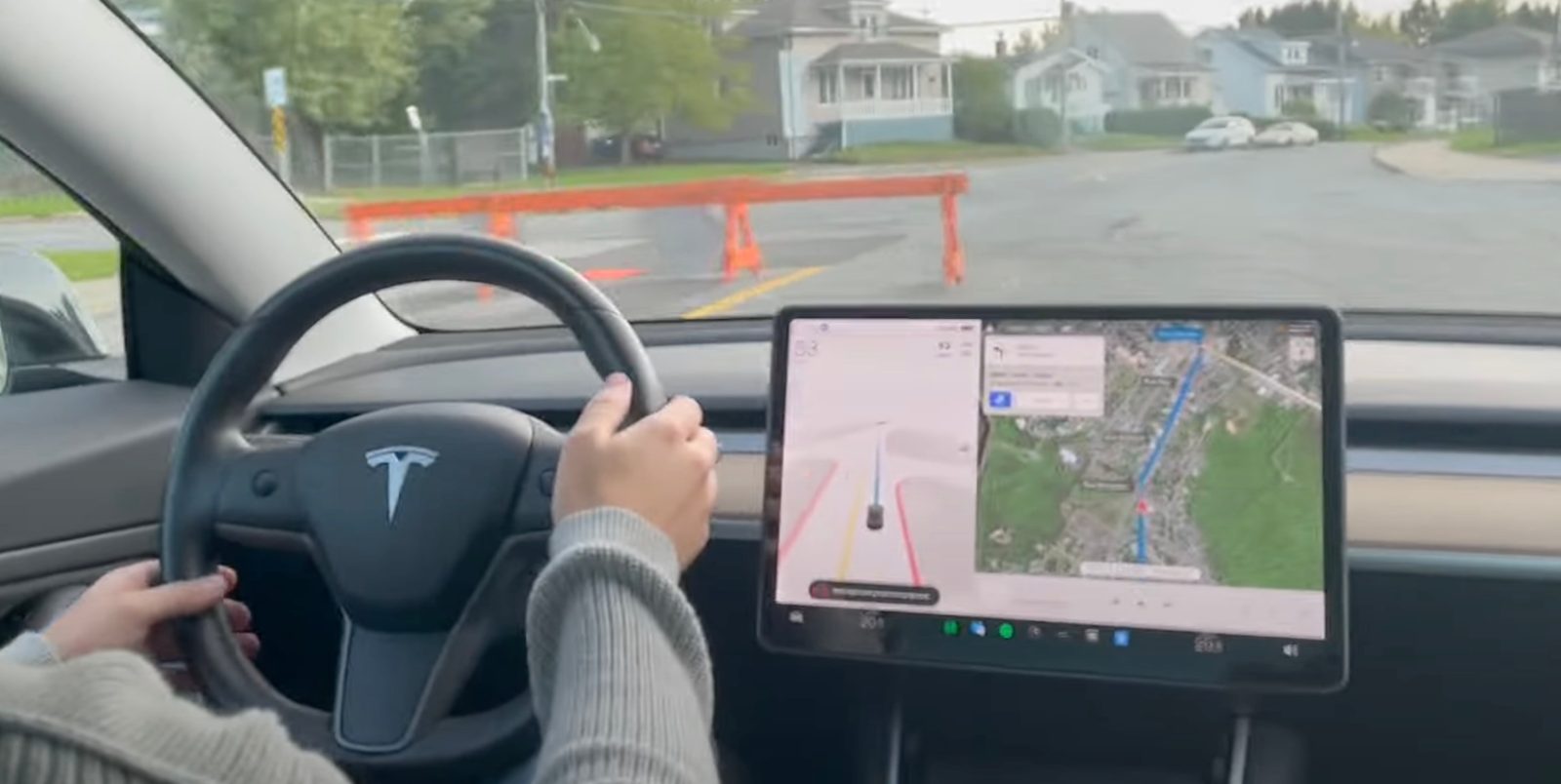
A brand new report based mostly on interviews with former check drivers who had been a part of Tesla’s inside self-driving workforce reveals the harmful extremes Tesla is keen to go to check its autonomous driving applied sciences.
Whereas you may make the argument that Tesla’s clients are self-driving check drivers because the automaker is deploying what it calls its “supervised self-driving” (FSD) system, the corporate additionally operates an inside fleet of testers.
We beforehand reported on Tesla hiring drivers everywhere in the nation to check its newest ‘FSD’ software program updates.
Now, Enterprise Insider is out with a brand new report after interviewing 9 of these check drivers who’re engaged on a particular venture known as ‘Rodeo’. They describe the venture:
Take a look at drivers stated they generally navigated perilous eventualities, significantly these drivers on Challenge Rodeo’s “essential intervention” workforce, who say they’re skilled to attend so long as attainable earlier than taking on the automobile’s controls. Tesla engineers say there’s a cause for this: The longer the automobile continues to drive itself, the extra information they should work with. Consultants in self-driving tech and security say such a strategy may pace up the software program’s improvement however dangers the security of the check drivers and other people on public roads.
A kind of former check drivers described it as “a cowboy on a bull and also you’re simply attempting to hold on so long as you’ll be able to” – therefore this system’s title.
Apart from typically utilizing a model of Tesla FSD that hasn’t been launched to clients, the check drivers typically use FSD like most clients, with the principle distinction being that they’re extra regularly attempting to push it to the bounds.
Enterprise Insider explains in additional element the “essential intervention workforce” with venture Rodeo:
Vital-intervention check drivers, who’re amongst Challenge Rodeo’s most skilled, let the software program proceed driving even after it makes a mistake. They’re skilled to stage “interventions” — taking guide management of the automobile — solely to forestall a crash, stated the three critical-intervention drivers and 5 different drivers acquainted with the workforce’s mission. Drivers on the workforce and inside paperwork say that automobiles rolled by means of purple lights, swerved into different lanes, or didn’t comply with posted pace limits whereas FSD was engaged. The drivers stated they allowed FSD to stay in management throughout these incidents as a result of supervisors inspired them to attempt to keep away from taking on.
These are behaviors that FSD is understood to do in buyer automobiles, however drivers typically take over earlier than it goes too far.
The objective of this workforce is to go too far.
One of many check drivers stated:
“You’re just about working on adrenaline all the eight-hour shift. There’s this sense that you just’re on the sting of one thing going critically fallacious.”
One other check driver described how Tesla FSD got here inside a few toes from hitting a bicycle owner:
“I vividly bear in mind this man leaping off his bike. He was terrified. The automobile lunged at him, and all I may do was stomp on the brakes.”
The workforce was reportedly happy by the incident. “He informed me, ‘That was good.’ That was precisely what they wished me to do,” stated the driving force.
You possibly can learn the complete Enterprise Insider report for a lot of extra examples of the workforce doing very harmful issues round unsuspecting members of the general public, together with pedestrians and cyclists.
How does this evaluate to different firms creating self-driving know-how?
Market chief Waymo reportedly does have a workforce doing comparable work as Tesla’s Rodeo “essential intervention workforce”, however the distinction is that they do the testing in closed environments with dummies.
Electrek’s Take
This seems to be a symptom of Tesla’s start-up strategy of “transfer quick, break issues”, however I don’t suppose it’s acceptable.
To be honest, not one of the 9 check drivers interviewed by BI stated that they had been in an accident, however all of them described some very harmful conditions through which outsiders had been dragged into the testing with out their information.
I believe that’s a foul concept and ethically fallacious. Elon Musk claims that Tesla is about “security first”, however the examples on this report sound something however secure.
FTC: We use revenue incomes auto affiliate hyperlinks. Extra.


